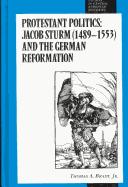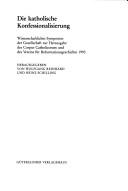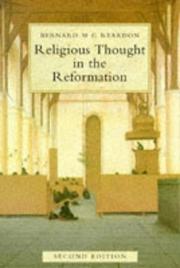| Listing 1 - 10 of 67 | << page >> |
Sort by
|
Book
ISBN: 9786410002728 Year: 1995 Publisher: Champaign, Ill. : Project Gutenberg,
Abstract | Keywords | Export | Availability | Bookmark
 Loading...
Loading...Choose an application
- Reference Manager
- EndNote
- RefWorks (Direct export to RefWorks)
Martin Luther was a German monk, priest, professor of theology and iconic figure of the Protestant Reformation. He strongly disputed the claim that freedom from God's punishment for sin could be purchased with money. He confronted indulgence salesman Johann Tetzel with his Ninety-Five Theses in 1517. His refusal to retract all of his writings at the demand of Pope Leo X in 1520 and the Holy Roman Emperor Charles V at the Diet of Worms in 1521 resulted in his excommunication by the pope and condemnation as an outlaw by the Emperor. -wikipedia.
Book
ISBN: 3515065261 9783515065269 Year: 1995 Publisher: Stuttgart: Steiner,
Abstract | Keywords | Export | Availability | Bookmark
 Loading...
Loading...Choose an application
- Reference Manager
- EndNote
- RefWorks (Direct export to RefWorks)

ISBN: 9780391038233 0391038230 Year: 1995 Publisher: Atlantic Highlands (N.J.): Humanities press,
Abstract | Keywords | Export | Availability | Bookmark
 Loading...
Loading...Choose an application
- Reference Manager
- EndNote
- RefWorks (Direct export to RefWorks)
Book
Year: 1995
Abstract | Keywords | Export | Availability | Bookmark
 Loading...
Loading...Choose an application
- Reference Manager
- EndNote
- RefWorks (Direct export to RefWorks)
Book
ISBN: 9004618686 Year: 1995 Publisher: Leiden : BRILL,
Abstract | Keywords | Export | Availability | Bookmark
 Loading...
Loading...Choose an application
- Reference Manager
- EndNote
- RefWorks (Direct export to RefWorks)
Protestant Politics presents a new interpretation of the impact of the Protestant Reformation on the political culture and government of the Holy Roman Empire. It arose from a desire to re-examine this subject, which was long dominated by the views of Leopold von Ranke (1795-1886), in the light of two recent developments: the liberation of pre-modern European history from its long domination by the idea of the nation-state, and the recognition of the Reformation as a social movement. Protestant Politics is also the first narrative of the German Reformation, based on original sources, in more than half-a-century. The particular approach of Protestant politics is to map the collision of the relatively unified Protestant movement with the dispersed, multi-layered structure of authority and power in the late medieval Holy Roman Empire. The narrative thread, which holds together the story's levels - local, provincial, regional, and Imperial - is the career of Jacob Sturm (1489-1553) of Strasbourg, the leading Protestant urban politician of the era. The rhythm of his career from a heritage of local autonomy through the great Peasants' War of 1525 to the trans-regional Protestant alliance (1531-47), and then back again to the local and provincial politics of the 1550s, mirrors the political career of German Protestantism from its explosive beginnings through expansion, defeat, and a loss of dynamism. This process, shaped by the peculiar political structures and traditions of the Empire - not the theology of Martin Luther - is responsible for German Protestantism' failure to develop a revolutionary potential similar to those of the French, English, and Netherlandish Protestant movements.Protestant Politics is written for historians and for students and readers of history at all levels. The quotes from original sources are all put into English, and basis of interpretation is explained in a lengthy introduction. Protestant Politics is a revisionist work on politics and religion in Germany. It will be of interest to students of German history, late medieval and early modern German history, German historiography, and religion and politics.
Book
ISBN: 0570042534 Year: 1995 Publisher: Saint Louis Concordia
Abstract | Keywords | Export | Availability | Bookmark
 Loading...
Loading...Choose an application
- Reference Manager
- EndNote
- RefWorks (Direct export to RefWorks)
Education, Humanistic --- Education --- Reformation --- Philosophy --- Sturmius, Joannes
Book
ISBN: 3980449211 9783980449212 Year: 1995 Publisher: Wittenberg Drei Kastanien Verlag
Abstract | Keywords | Export | Availability | Bookmark
 Loading...
Loading...Choose an application
- Reference Manager
- EndNote
- RefWorks (Direct export to RefWorks)

ISBN: 3579016660 9783579016665 Year: 1995 Volume: 198 Publisher: Gütersloh Gütersloher Verlagshaus
Abstract | Keywords | Export | Availability | Bookmark
 Loading...
Loading...Choose an application
- Reference Manager
- EndNote
- RefWorks (Direct export to RefWorks)
Christian church history --- anno 1500-1599 --- Counter-Reformation --- Reformation --- Congresses --- 27 "15" --- 27 <43> "15/17" --- -Reformation --- -Protestant Reformation --- Church history --- Protestantism --- Anti-Reformation --- Church renewal --- Kerkgeschiedenis--?"15" --- Kerkgeschiedenis--Duitsland voor 1945 en na 1989--Moderne Tijd --- History --- -Kerkgeschiedenis--?"15" --- Counter-Reformation - Congresses --- Reformation - Congresses

ISBN: 0582259592 Year: 1995 Publisher: London Longman
Abstract | Keywords | Export | Availability | Bookmark
 Loading...
Loading...Choose an application
- Reference Manager
- EndNote
- RefWorks (Direct export to RefWorks)
Hervorming (Luther, e.a.) --- Reformatie --- Reformation --- Réforme (Luther e.a.) --- 284.1 --- Lutheraanse hervorming. Reformatie van Luther --- Reformation. --- Theology, Doctrinal --- History --- 284.1 Lutheraanse hervorming. Reformatie van Luther --- Protestant Reformation --- Church history --- Counter-Reformation --- Protestantism --- Theology [Doctrinal ] --- 16th century
Book
Year: 1995 Publisher: [Place of publication not identified] P Lang
Abstract | Keywords | Export | Availability | Bookmark
 Loading...
Loading...Choose an application
- Reference Manager
- EndNote
- RefWorks (Direct export to RefWorks)
Counter-Reformation in art --- Arts, Renaissance --- Arts, Baroque --- Arts, Spanish
| Listing 1 - 10 of 67 | << page >> |
Sort by
|

 Search
Search Feedback
Feedback About UniCat
About UniCat  Help
Help News
News